- Home
- Dan Simmons
Olympos t-2 Page 8
Olympos t-2 Read online
Page 8
None of that happened.
Mahnmut paused on the ramp. “Aren’t you coming?” The little moravec’s voice sounded tinny in the human’s ears.
“Why aren’t I dead?” said Hockenberry. It felt as if he’d suddenly been wrapped in invisible bubble wrap.
“Your chair’s protecting you.”
“My chair??” Hockenberry looked around him but there was not so much as a shimmer. “You mean I have to keep sitting here forever or die?”
“No,” said Mahnmut, sounding amused. “Come on out. The forcefield-chair will come with you. It’s already providing heat, cooling, osmotic scrubbing and recycling of your oxygen—good for about thirty minutes—and acting as a pressure suit.”
“But the… chair… is part of the ship,” said Hockenberry, standing gingerly and feeling the invisible bubble wrap move with him. “How can it go outside the hornet?”
“Actually, the hornet is more a part of the chair,” said Mahnmut. “Trust me. But watch your step out here. The chair-suit will give you a little down-thrust once you’re on the surface, but the gravity on Phobos is so weak that a good jump would allow you to reach escape velocity. Adios, Phobos, for Thomas Hockenberry.”
Hockenberry paused at the top stair of the ramp and clutched the metal door frame.
“Come on,” said Mahnmut. “The chair and I won’t let you float away. Let’s get inside. There are other moravecs who want to talk to you.”
After leaving Hockenberry with Asteague/Che and the other prime integrators from the Five Moons Consortium, Mahnmut left the pressurized dome and went for a walk in Stickney Crater. The view was spectacular. The long axis of Phobos constantly pointed at Mars and the moravec engineers had tweaked it so that the red planet was always hanging directly above Stickney, filling most of the black sky, since the steep crater walls blocked out the peripheral views. The little moon turned on its axis once every seven hours—precisely the same amount of time it took to orbit Mars—so the giant red disk with its blue oceans and white volcanoes rotated slowly above.
He found his friend Orphu of Io several hundred meters up amidst the spiderweb of cranes, girders, and cables tethering the Going-to-Earth ship to the launch crater. Deep-space moravecs, engineering bots, black-beetled rockvecs, and Callistan supervisors scuttled and clambered over the ship and connecting girders like glittering aphids. Searchlights and worklights played on the dark hull of the huge Earth-ship. Sparks fell in cascades from batteries of roving autowelders. Nearby, more secure in the mesh of a metal cradle, was The Dark Lady, Mahnmut’s own deep-sea submersible from Europa. Months ago, the moravecs had salvaged the damaged and powerless vessel from its hiding place along the Martian coast of the north Tethys Sea, used tugs to lift it to Phobos, and then repaired, repowered, and modified the tough little sub for service on the Earth mission.
Mahnmut found his friend a hundred meters up, scuttling along steel cables under the belly of the spaceship. He hailed him on their old private band.
“Is that Orphu I spy? The Orphu formerly of Mars, formerly of Ilium, and always of Io? That Orphu?”
“The same,” said Orphu. Even on the radio or tightbeam channels, Orphu’s rumble seemed to border on the subsonic. The hardvac moravec used its carapace thrusters to jump thirty meters from the cables to the girder where Mahnmut was balancing. Orphu grabbed a girder with his manipulator pincers and hung there a few meters out.
Some of the moravecs—Asteague/Che, for example, the chitinous Belt moravecs for another, Mahnmut himself somewhat less so—were humanoid-looking enough. Not Orphu of Io. The moravec, designed and evolved to work in the sulfur-torus of Io in the magnetic, gravitational, and blinding radiation storms of Jupiter space, was about five meters long, more than two meters high, and slightly resembled a horseshoe crab, if horseshoe crabs were outfitted with extra legs, sensor packs, thruster pods, manipulators that almost—not quite—could serve as hands, and an aged, pitted shell-carapace so many times cracked and mended that it looked as if it had been cemented together by spackle.
“Is Mars still spinning up there, old friend?” rumbled Orphu.
Mahnmut turned his head skyward. “It is. Still rotating like some huge red shield. I can see Olympus Mons just coming out from the terminator.”
Mahnmut hesitated a moment. “I’m sorry about the outcome of the most recent surgery,” he said at last. “I’m sorry they couldn’t fix it.”
Orphu shrugged four articulated arm-legs. “It doesn’t matter, old friend. Who needs organic eyes when one has thermal imaging, sniffy little gas chromatograph mass spectrometers on my knees, radar—deep and phased—sonar and a laser-mapper? It’s just those useless, faraway things like stars and Mars that I can’t quite make out with all these lovely sensory organs.”
“Yes,” said Mahnmut. “But I’m sorry.” His friend had lost his organic optic nerve when he was almost destroyed during their first encounter with an Olympian god in Mars orbit—the same god who had blasted their ship and two comrades into gas and debris. Mahnmut knew that Orphu was lucky to be alive and repairable to the extent he had been, but still…
“Did you deliver Hockenberry?” rumbled Orphu.
“Yes. The prime integrators are briefing him now.”
“Bureaucrats,” rumbled the large Ionian. “Want a ride to the ship?”
“Sure.” Mahnmut jumped to Orphu’s shell, grabbed a handhold with his most serious gripping pincer, and held on as the hardvac moravec thrusted out away from the gantry, up to the ship, and then around. They were almost a kilometer above the crater floor here and the true size of the Earth-ship—tethered to the gantry like an ellipsoid helium balloon—became visible for the first time. It was easily five times the length of the spacecraft that had brought the four moravecs to Mars from Jupiter space more than a standard-year earlier.
“It’s impressive, isn’t it?” said Orphu. He’d been working with the Belt and Five Moons engineers for more than two months on the craft.
“It’s big,” said Mahnmut. And then, sensing Orphu’s disappointment, he added, “And rather beautiful in a bumpy, bulgy, black, bulbous, sinister sort of way.”
Orphu rumbled his deep laugh—tones that always made Mahnmut think of aftershocks from a Europan icequake or follow-on waves to a tsunami. “That’s an awful lot of alliteration from an anxious astronaut,” he said.
Mahnmut shrugged, felt bad for a second because his friend could not see the gesture, and then realized Orphu had seen it. The big moravec’s new radar was a very fine instrument, lacking only the ability to see colors. Orphu had told him that he could make out subtle shifts on a human’s face with the close-radar. Useful if Hockenberry does come on this mission, thought Mahnmut.
As if reading his mind and memory banks, Orphu said, “I’ve been thinking a lot about human sadness recently, and how it compares to our moravec style of dealing with loss.”
“Oh, no,” said Mahnmut, “you’ve been reading that French person again.”
“Proust,” said Orphu. “That ‘French person’s’ name is Proust.”
“I know. But why do you do that? You know that you always get depressed when you read Remembrance of Things Past.”
“In Search of Lost Time,” corrected Orphu of Io. “I’ve been reading the section called ‘Grief and Oblivion.’ You know, the part after Albertine dies and Marcel, the narrator, is trying to forget her, but he can’t?”
“Oh, well,” said Mahnmut. “That should cheer you up. How about if I loaned you Hamlet for a chaser?”
Orphu ignored the offer. They were high enough now to see the entire ship beneath them and to peer over the walls of Stickney Crater. Mahnmut knew that Orphu could travel many thousands of kilometers of deep space with no problem, but the sense that they were out of control and flying away from Phobos and the Stickney Base—just as he’d warned Hockenberry—was very strong.
“To cut the cords of connection to Albertine,” says Orphu, “the poor narrator has to go back through his memo
ry and consciousness and confront all of the Albertines—the ones from memory, as well as the imaginary ones he’d desired and been jealous of—all those virtual Albertines he’d created in his own mind when he was worrying about whether she was sneaking out to see other women behind his back. Not to mention the different Albertines of his desire—the girl he hardly knew, the woman he captured but did not possess, the woman he’d grown tired of.”
“It sounds very tiring,” said Mahnmut, trying to convey through his own tone over the radio band how tired he was of the whole Proust thing.
“That’s not the half of it,” said Orphu, ignoring the hint—or perhaps oblivious to it. “To move ahead in grieving, poor Marcel—the narrator-character has the same name as the author, you know… wait, you did read this, didn’t you, Mahnmut? You assured me you had when we were coming in-system last year.”
“I… skimmed it,” said the Europan moravec.
Even Orphu’s sigh bordered on the subsonic. “Well, as I was saying, poor Marcel not only has to confront this legion of Albertines in his consciousness before being able to let her go, he has to also confront all the Marcels who had perceived these multiple Albertines—the ones who had desired her beyond all things, the insanely jealous Marcels, the indifferent Marcels, the Marcels whose judgment had been distorted by desire, the…”
“Is there a point here?” asked Mahnmut. His own area of interest over the past standard century and a half had been Shakespeare’s sonnets.
“Just the staggering complexity of human consciousness,” said Orphu. He rotated his shell one hundred and eighty degrees, fired his thrusters, and they started back toward the ship, the gantry, Stickney Crater, and safety—such as it was. Mahnmut craned his short neck to look up at Mars as they pivoted. He knew it was an illusion, but it seemed closer. Olympus and the Tharsis volcanoes were almost out of sight now as Phobos hurtled toward the far limb of the planet.
“Do you ever wonder how our grieving differs from… say… Hockenberry’s? Or Achilles’?” asked Orphu.
“Not really,” said Mahnmut. “Hockenberry seems to grieve as much for the loss of memory of most of his previous life as he does for his dead wife, friends, students, and so forth. But who can tell with human beings? And Hockenberry is only a reconstituted human being—someone or something rebuilt him out of DNA, RNA, his old books, and who knows what kinds of best-guess programs? As for Achilles—when he gets sad, he goes out and kills someone. Or a bunch of someones.”
“I wish I’d been there to see his Attack on the Gods during the first month of the war,” said Orphu. “From the way you described it, the carnage was astounding.”
“It was,” said Mahnmut. “I’ve blocked random access to those files in my NOM because they’re so disturbing.”
“That’s another element of Proust I’ve been thinking about,” said Orphu. They touched down on the upper hull of the Earth-ship and the big moravec drove connecting micro-pitons into the sheath of insulating material there. “We have our non-organic memory to fall back on when our neural memories seem doubtful. Human beings have only that confusing mass of chemically driven neurological storage to rely on. They’re all subjective and emotion-tinged. How can they trust any of their memories?”
“I don’t know,” said Mahnmut. “If Hockenberry goes with us to Earth, maybe we can get a glimpse of how his mind works.”
“It’s not as if we’ll be alone with him with a lot of time to talk,” said Orphu. “This will be a high-g boost and an even higher-g deceleration and there’ll be quite a mob this time—at least three dozen Five Moons ‘vecs and a thousand rockvec troopers.”
“Prepared for anything this time, huh?” said Mahnmut.
“I doubt it,” rumbled Orphu. “Although this ship carries enough weapons to reduce Earth to cinders. But so far, our planning hasn’t kept up with the surprises.”
Mahnmut felt the same sickness he’d been touched by when he’d learned their ship to Mars had been secretly armed. “Do you ever mourn for Koros III and Ri Po the way your Proust narrator mourns for his dead?” he asked the Ionian.
Orphu’s fine radar antenna shifted slightly toward the smaller moravec, as if trying to read Mahnmut’s expression the way he said he could a human’s. Mahnmut, of course, had no expression.
“Not really,” said Orphu. “We didn’t know them before the mission and didn’t travel in the same compartment with them during the mission. Before Zeus… got us. So mostly they were voices on the comm to me, although sometimes I access NOM to see their images… just to honor their memory, I guess.”
“Yes,” said Mahnmut. He did the same thing.
“Do you know what Proust said about conversation?”
Mahnmut resisted another sigh. “What?”
“He said… ‘When we chat, it is no longer we who speak…. we are fashioning ourselves then in the likeness of other people, and not of a self that differs from them.’ ”
“So when I talk to you,” Mahnmut said on their private frequency, “I’m really shaping myself into the likeness of a six-ton horseshoe crab with a beat-up shell, too many legs, and no eyes?”
“You can hope,” rumbled Orphu of Io. “But your reach should always exceed your grasp.”
9
Penthesilea swept into Ilium on horseback an hour after dawn with twelve of her finest sister-warriors riding two abreast behind her. Despite the early hour and the cold wind, thousands of Trojans were on the walls and lining the road that passed through the Scaean Gate to Priam’s temporary palace, all of them cheering as if the Amazon queen were arriving with thousands of reinforcements rather than thirteen. The mobs waved kerchiefs, thumped spears against leather shields, wept, hurrahed, and threw flowers beneath the hooves of the horses.
Penthesilea accepted it all as her due.
Deiphobus, King Priam’s son, Hector’s and the dead Paris’s brother, and the man whom the whole world knew would be Helen’s next husband, met the Amazon queen and her warriors just outside the walls of Paris’s palace, where Priam currently resided. The stout man stood in gleaming armor and red cape, his helmet brush stiff and golden, his arms folded until he extended one palm up in salute. Fifteen of Priam’s private guardsmen stood at rigid attention behind him
“Hail, Penthesilea, daughter of Ares, Queen of the Amazons,” cried Deiphobus. “Welcome to you and your twelve warrior women. All Ilium offers you thanks and honor this day, for coming as ally and friend to help us in our war with the gods of Olympos themselves. Come inside, bathe, receive our gifts, and know the true richness of Troy’s hospitality and appreciation. Hector, our noblest hero, would be here to welcome you in person but he is resting for a few hours after tending our brother’s funeral pyre all through the night.”
Penthesilea swung down lightly from her giant war steed, moving with consummate grace despite her solid armor and gleaming helmet. She grasped Deiphobus by the forearm with both her strong hands, greeting him with a fellow-warrior’s grip of friendship. “Thank you, Deiphobus, son of Priam, hero of a thousand single combats. I and my companions thank you, extend our condolences to you, your father, and all of Priam’s people at the news of Paris’s death—news that reached us two days ago—and we accept your generous hospitality. But I must tell you before I enter Paris’s home, Priam’s palace now, that I come not to fight the gods alongside you, but to end your war with the gods once and for all.”
Deiphobus, whose eyes tended to protrude in a hypothalic way at the best of times, literally goggled now at this beautiful Amazon. “How would you do this, Queen Penthesilea?”
“This thing I have come to tell you, and then to do,” said Penthesilea. “Come, take me in, friend Deiphobus. I need to meet with your father.”
Deiphobus explained to the Amazon queen and her bodyguard-army that his father, royal Priam, was staying here in this wing of Paris’s lesser palace because the gods had destroyed Priam’s palace on the first day of the war eight months earlier, killing his wife and the city’
s queen, Hecuba.
“Again you have the Amazon women’s condolences, Deiphobos,” said Penthesilea. “Sorrow at the news of the queen’s death reached even into our distant isles and hills.”
As they entered the royal chamber, Deiphobos cleared his throat. “Speaking of your distant land, daughter of Ares, how is that you survived the gods’ wrath this month? Word has spread through the city overnight that Agamemnon found the Greek Isles empty of human life during his voyage home. Even the brave defenders of Ilium are quaking this morning at the thought of the gods eliminating all peoples save for the Argives and us. How is that you and your race was spared?”
“My race hasn’t been,” Penthesilea said flatly. “We fear that the land of the brave Amazon women is as empty as the other lands we’ve passed through the last week of our travel. But Athena has spared us for our mission. And the goddess sent an important message to the people of Ilium.”
“Pray tell us,” said Deiphobus.
Penthesilea shook her head. “The message is for royal Priam’s ears.”
As if on cue, trumpets sounded, curtains were pulled back, and Priam entered slowly, leaning on the arm of one of his royal guardsmen.
Penthesilea had seen Priam in his own royal hall less than a year before when she and fifty of her women had braved the Achaean siege to bring words of encouragement and alliance to Troy—Priam had told her that the Amazon’s help was not needed then, but had showered her with gold and other gifts. But now the Amazon queen was shocked into silence by Priam’s appearance.
The king, always venerable but filled with energy, had seemed to age twenty years in the past twelve months. His back, always so straight, was now crooked. His cheeks, always ruddy with wine or excitement at the times Penthesilea had seen him over her five-and-twenty years, even when she was a child and she and her sister, Hippolyte, had hidden behind curtains in their mother’s throne room when the royal party from Ilium visited to pay tribute, were now concave, as if the old man had lost all of his teeth. His salt-and-pepper hair and beard had gone a sad, straggly white. Priam’s eyes were rheumy now, gazing at ghosts.

 The Terror
The Terror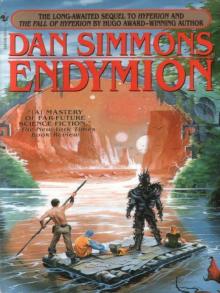 Endymion
Endymion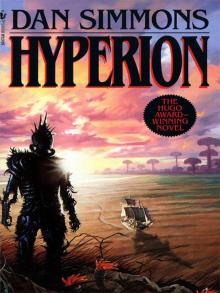 Hyperion
Hyperion The Crook Factory
The Crook Factory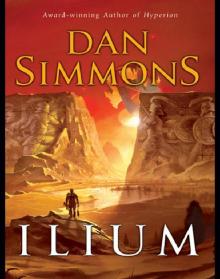 Ilium
Ilium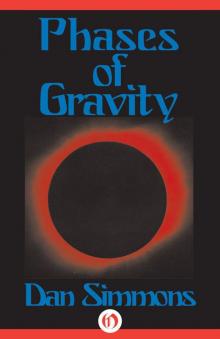 Phases of Gravity
Phases of Gravity Hardcase
Hardcase Fires of Eden
Fires of Eden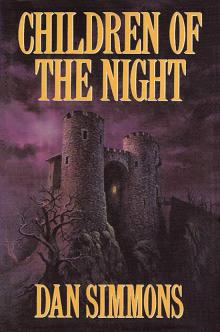 Children of the Night
Children of the Night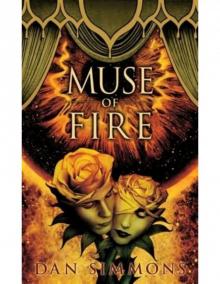 Muse of Fire
Muse of Fire Drood
Drood The Fifth Heart
The Fifth Heart Carrion Comfort
Carrion Comfort The Hollow Man
The Hollow Man Summer of Night
Summer of Night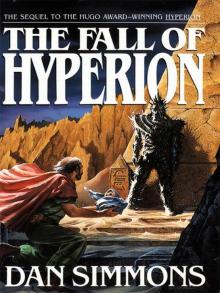 The Fall of Hyperion
The Fall of Hyperion Black Hills
Black Hills A Winter Haunting
A Winter Haunting Hard Freeze
Hard Freeze Prayers to Broken Stones
Prayers to Broken Stones Hard as Nails
Hard as Nails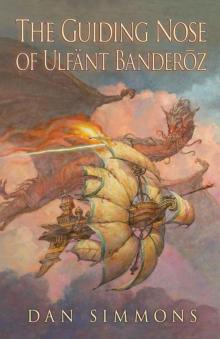 The Guiding Nose of Ulfant Banderoz
The Guiding Nose of Ulfant Banderoz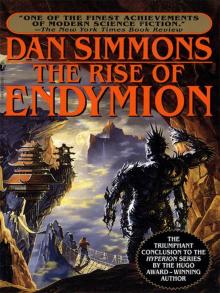 The Rise of Endymion
The Rise of Endymion Orphans of the Helix
Orphans of the Helix Lovedeath
Lovedeath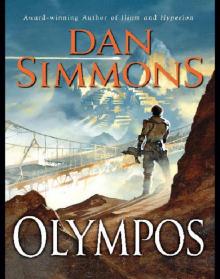 Olympos
Olympos Darwin's Blade
Darwin's Blade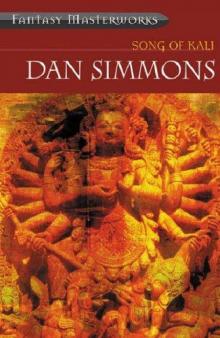 Song of Kali
Song of Kali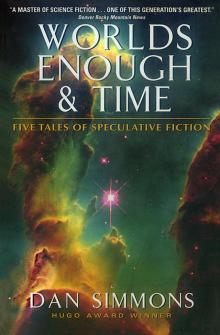 Worlds Enough & Time: Five Tales of Speculative Fiction
Worlds Enough & Time: Five Tales of Speculative Fiction The Abominable
The Abominable The Death of the Centaur
The Death of the Centaur Hard as Nails jk-3
Hard as Nails jk-3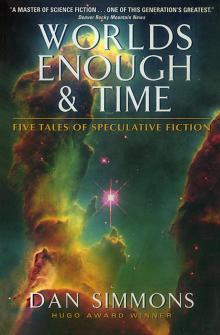 Worlds Enough & Time
Worlds Enough & Time Joe Kurtz Omnibus
Joe Kurtz Omnibus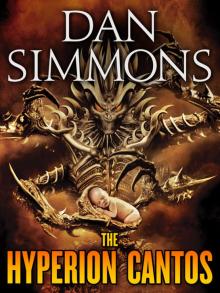 The Hyperion Cantos 4-Book Bundle
The Hyperion Cantos 4-Book Bundle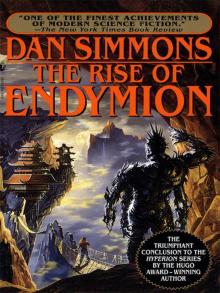 Rise of Endymion
Rise of Endymion Hard Freeze jk-2
Hard Freeze jk-2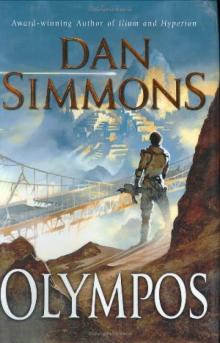 Olympos t-2
Olympos t-2 The Abominable: A Novel
The Abominable: A Novel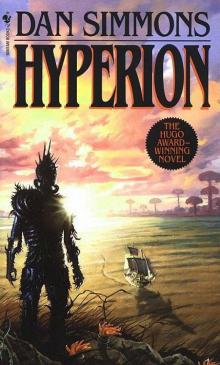 Hyperion h-1
Hyperion h-1 Remembering Siri
Remembering Siri Black Hills: A Novel
Black Hills: A Novel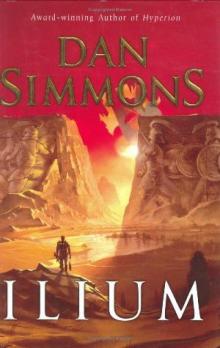 Ilium t-1
Ilium t-1 Hardcase jk-1
Hardcase jk-1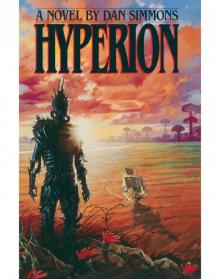 Hyperion 01 - Hyperion
Hyperion 01 - Hyperion